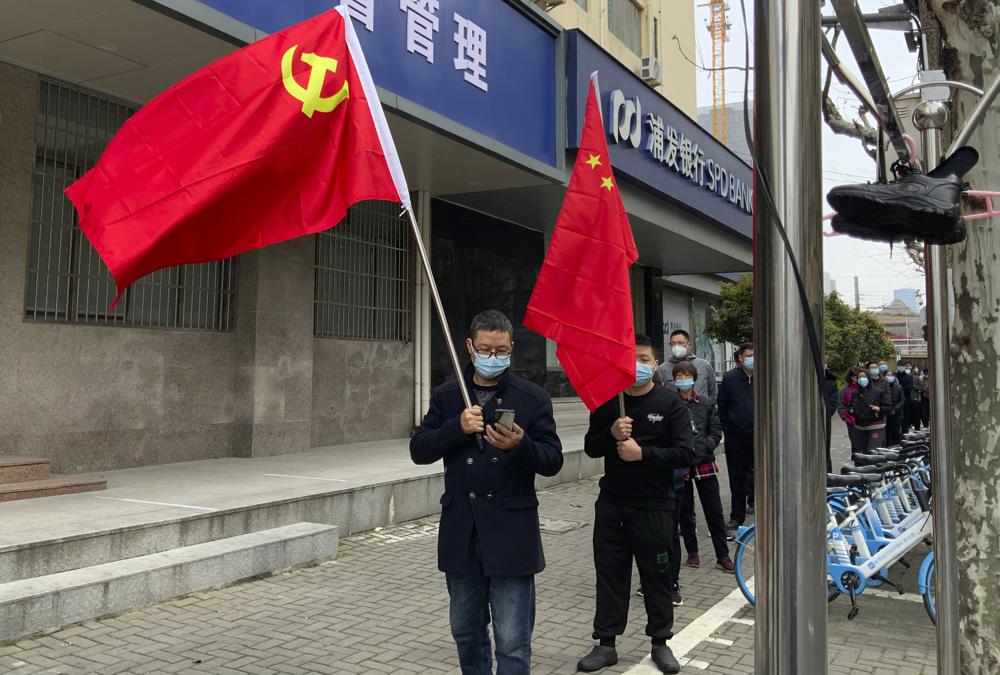
BEIJING — About 16 million residents in Shanghai are being tested for the coronavirus during the second stage of the lockdown that shifted Friday to the western half of China’s biggest city and financial capital.
Meanwhile, residents of Shanghai’s eastern districts who were supposed to be released from four days of isolation have been told their lockdowns could be extended if COVID-19 cases are found in their residential compounds.
The lockdown in Shanghai, being done in two phases over eight days to enable testing of its entire population, has shaken global markets worried about the possible economic impact. China’s manufacturing activity fell to a five-month low in March, a monthly survey showed, as lockdowns and other restrictions forced factories to suspend production.
Government workers and volunteers wearing full protective equipment went door-to-door with megaphones in the city with 26 million people, calling on residents to report for testing at designated sites where they were met by long lines and waits of more than 90 minutes.
Veronica Wang, a resident of Pudong, as Shanghai’s eastern half is known, said she and many she knows were still under lockdown, with no word on when normal life will be restored.
Wang’s compound had been closed off even before the lockdown began. She said a large part of her days is now spent on trying to hop on to large group orders for groceries and items from soy sauce to toothpaste obtained through personal connections.
“For example, we have one (group order) set up for vegetables, one for eggs, one for bread,” she said.
Shanghai had not previously experienced a sweeping lockdown, although many residents chose to stay at home even without formal orders to do so.
This time, the “whole environment is rather tense,” Wang said, citing a neighbor who waited hours for an emergency call to be answered.
“The mood is different,” she said.
China’s National Health Commission said another 1,787 domestic cases of COVID-19 had been recorded on Thursday, including 358 in Shanghai. Another 5,442 tested positive for the virus without becoming ill, 4,144 of them in Shanghai.
People who tested positive without symptoms are being taken to temporary isolation centers, including gymnasiums and exhibition centers.
Public transport has been suspended and roads closed, bringing the normally bustling metropolis to a standstill. While city residents are being told to stay put, airports and train stations remain open.
The measures have been decried by some Chinese as excessive, although there has been little open defiance. Amid the grumbling, Shanghai authorities have conceded shortcomings in their handling of the surge driven by the omicron variant, after panic buying stripped store shelves of necessities.
“We didn’t prepare sufficiently enough,” Ma Chunlei, a senior Shanghai official said at a news conference Thursday. “We sincerely accept the criticisms from the public and are making efforts to improve it.”







